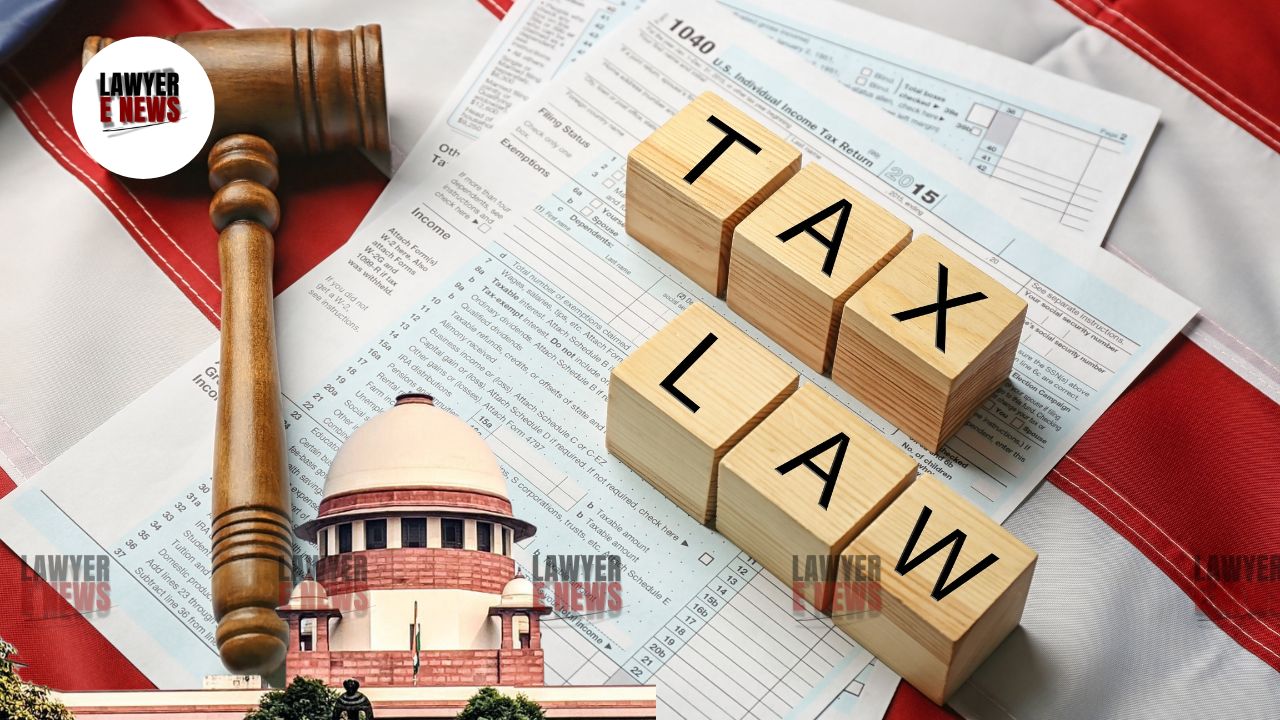-
by sayum
16 February 2026 7:15 AM



When Income Tax Returns Are Available, Courts Cannot Arbitrarily Ignore Them – Supreme Court Corrects High Court's Error and set aside the Karnataka High Court’s refusal to enhance compensation awarded to the family of a deceased accident victim. The Court held that the income of the deceased must be determined based on his Income Tax Returns (ITRs), not arbitrarily estimated by the Tribunal.
Justice Sanjay Karol, speaking for the bench, observed: "Income Tax Returns are statutory documents and cannot be ignored when determining the income of a deceased person in motor accident compensation cases. The approach of the Tribunal and the High Court in disregarding the ITR is legally untenable."
The Supreme Court enhanced the compensation from ₹13,91,300/- to ₹24,53,280/-, holding that the deceased’s annual income must be taken as ₹1,98,192/- as per his ITR, rather than ₹90,000/- as estimated by the lower courts.
The case arose from a tragic accident that occurred on September 30, 2012, when Vivekananda Shenoy, aged 47, was fatally injured in a road accident involving a negligent bus driver in Mangalore. He succumbed to his injuries three days later.
His wife, Vijayalaxmi Shenoy, filed a claim petition before the Motor Accidents Claims Tribunal (MACT), Mangalore, seeking ₹1 crore in compensation, asserting that the deceased was a mechanical engineer earning ₹5 lakh per annum as per his ITR.
The MACT awarded ₹13,91,300/-, arbitrarily fixing the deceased’s annual income at ₹90,000/-, without considering his Income Tax Returns. The claimant appealed to the Karnataka High Court, which dismissed the appeal, holding that there was no need to reassess the income.
The Supreme Court, however, found this approach legally flawed, stating: "Where Income Tax Returns are available, they should form the primary basis for determining income. The High Court erred in dismissing the appeal without correcting the erroneous income assessment."
The Supreme Court reaffirmed that Income Tax Returns must be treated as conclusive proof of income unless proven otherwise. Referring to its previous ruling in Malarvizhi & Ors. v. United India Insurance Co. Ltd., (2020) 4 SCC 228, the Court stated: "The determination of income must proceed on the basis of Income Tax Returns when available, as they are reliable statutory documents."
The Court also cited New India Assurance Co. Ltd. v. Sonigra Juhi Uttamchand, 2025 SCC OnLine SC 9, which held: "Monthly income should be determined based on ITR if tax payment details are appropriately produced before the Tribunal."
Applying this principle, the Supreme Court held that the deceased’s annual income should be fixed at ₹1,98,192/- as per his ITR for 2012-13, rather than ₹90,000/- as estimated by the Tribunal and upheld by the High Court.
Future Prospects Must Be Added to Compensation
The Court also corrected the lower courts' failure to include future prospects in the compensation calculation. Referring to National Insurance Co. Ltd. v. Pranay Sethi, (2017) 16 SCC 680, the Supreme Court ruled:
"Where the deceased is below 50 years and in stable employment, future prospects must be considered. The deceased was aged 47, and thus, a 25% enhancement should be applied."
Accordingly, the Court added 25% to the annual income for future prospects, significantly increasing the compensation.
Loss of Consortium and Non-Pecuniary Damages Cannot Be Ignored
The Supreme Court reaffirmed the right of the claimant to non-pecuniary damages for loss of consortium, loss of estate, and funeral expenses in accordance with Pranay Sethi and New India Assurance Co. Ltd. v. Sonigra Juhi Uttamchand.
The Court enhanced the compensation under these heads, holding: "Compensation for loss of estate, funeral expenses, and loss of consortium must be standardized and cannot be arbitrarily reduced. The High Court overlooked these established principles."
Setting aside the High Court’s erroneous judgment, the Supreme Court enhanced the compensation from ₹13,91,300/- to ₹24,53,280/-, with interest to be paid as per the MACT’s award.
The Court directed National Insurance Co. Ltd. to pay the revised compensation without delay, emphasizing that just and fair compensation must be ensured for accident victims' families.
Justice Karol concluded with a strong reminder: "Motor accident claims must be adjudicated with fairness and justice, not with rigid and arbitrary calculations. Ignoring income tax returns leads to unjust outcomes and must be discouraged."
Date of Decision: February 11, 2025
